#leilah weinraub
Explore tagged Tumblr posts
Text
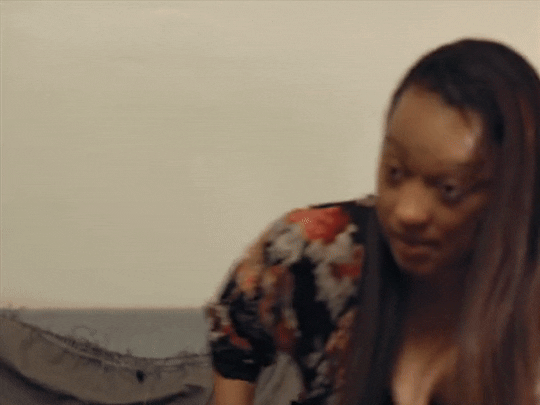
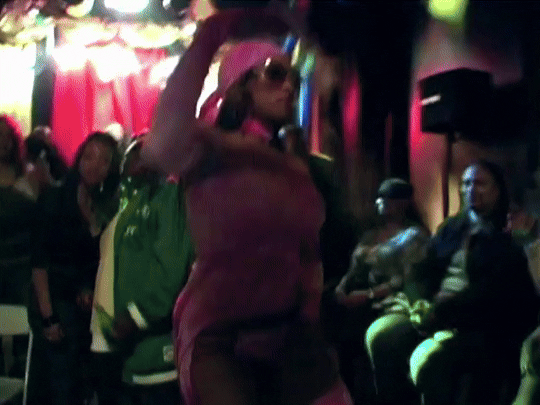



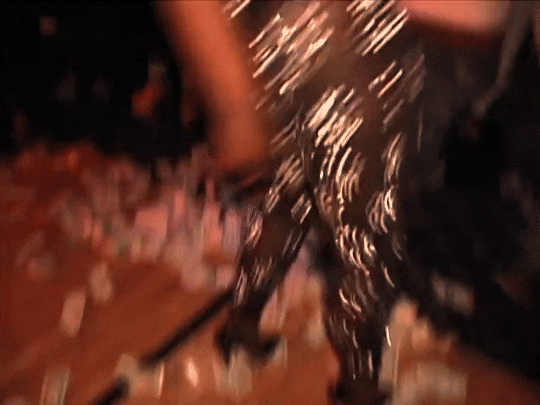
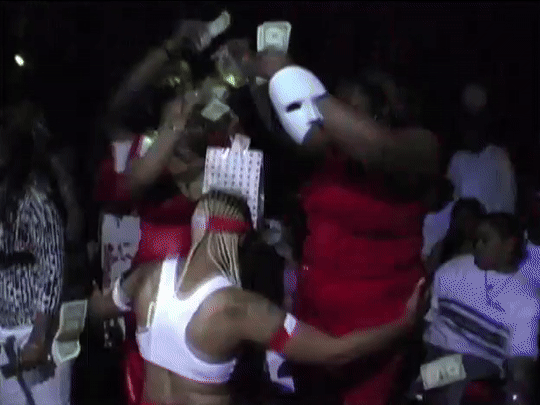

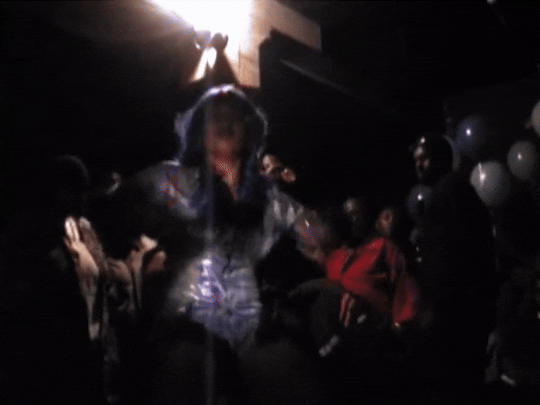

SHAKEDOWN (2018) dir. Leilah Weinraub ‘Shakedown’ was a series of parties founded by and for black women in Los Angeles that featured go-go dancing and strip shows for the city’s lesbian underground scene. Inspired by trans woman Mahogany who, as the mother of the scene, presided over queer strip shows and balls for non-heterosexual audiences in the 1980s, butch Ronnie Ron created, produced and presented the new shows. In them, the largely female clientele slipped dollar notes into lap dancers’ panties while celebrating lesbian sexuality to pulsating hip-hop beats. (link in title)
#flashing tw#shakedown#shakedown 2018#lgbt cinema#lesbian cinema#queer cinema#lgbt#queer#lesbian#usa#us cinema#2018#Leilah Weinraub#2010s#2010s cinema#north american cinema#lgbt documentary#queer documentary#flashing#flashing warning#flashing images#flashing lights#flashing gif
40 notes
·
View notes
Text

Shakedown, Leilah Weinraub (2018)
10 notes
·
View notes
Text


9 notes
·
View notes
Text



Big Beat Disaster by DIS (2023)
Big Beat Disaster is a misquotation from Britney Spears’ 2013 classic “Work Bitch,” which Leilah Weinraub references while singing, speaking and ranting in the 2021 DIS film, Everything But The World
from left to right: Eighth Grade World History. Read it again, Daddy. and She's lying
#art#DIS#big beat disaster#text from press release on contemporary art library#contemporary art library#leilah weinraub#eighth grade world history#read it again#she's lying#giclée print on cotton rag#burnt walnut storm shutter frame
0 notes
Text
SHAKEDOWN
1 note
·
View note
Text


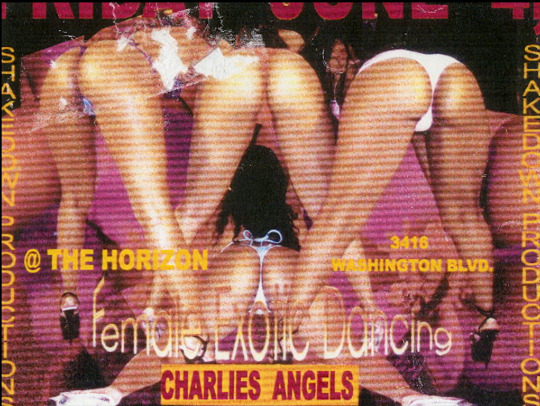







Shakedown flyers 2002-2004
Shakedown was a series of parties founded by and for Black women in Los Angeles featuring go-go dancing and strip shows for the city's lesbian underground scene.
From "Shakedown" (2018), Dir. Leilah Weinraub
#shakedown#lesbian#lesbian ns/fw#femme lesbian#butchfemme#lesbian film#2000s#black lesbian#black women
812 notes
·
View notes
Text
saw my list of black sapphic books to read this month, but don’t really read? i got you, here’s a list of black sapphic films (or films featuring black sapphics) to watch this black history month
documentaries:
stormé: lady of the jewel box (1991, dir. michelle parkerson)*
black/womyn: conversations with lesbians of african descent (2008, dir. tiona nekkia mcclodden)*
difficult love (2010, dir. zanele muholi & peter goldsmid)*
shakedown (2018, dir. leilah weinraub)*
drama:
the watermelon woman (1996, dir. cheryl dunye)*
pariah (2011, dir. dee rees)*
rafiki (2018, dir. wanuri kahiu)*
selah and the spades (2019, dir. tayarisha poe)*
valley of a thousand hills (2022, dir. bonie sithebe)*
tahara (2020, dir. olivia peace)
mars one (2022, dir. gabriel martins)
rom-com:
the incredibly true adventure of two girls in love (1995, dir. maria maggenti)
comedy:
d.e.b.s. (2004, dir. angela robinson)*
bottoms (2023, dir. emma seligman)
horror:
the mark of lilith (1986, dir. bruna fionda, polly gladwin, & isiling mack-nataf)
good manners (2017, dir. juliana rojas & marco dutra)
the perfection (2018, dir. richard shepherd)
jagged mind (2023, dir. kelley kali)*
bodies bodies bodies (2023, dir. halina reijn)
thriller:
set it off (1996, dir. f. gary gray)
the eiffel tower mystery (2016, dir. léa fazer)
how to blow up a pipeline (2022, dir. daniel goldhaber)
short films:
sunday’s child (2019, dir. maisie richardson-sellers)*
tender (2019, dir. felicia pride)*
ìfé (2020, dir. uyaiedu ipke-etim)*
the beginning & the middle (2021, dir. alexis g. zall)
heart shot (2022, dir. marielle woods)
grace (2024, dir. natalie jasmine harris)*
honorable mention: i saw the tv glow (2024, dir. jane schoenbrun), for what i felt was some undeniable implied sapphicism between the two main characters but was never actually explicitly canonized
additional info:
* indicates that the film listed was directed by a black woman/non-binary person
-> “why wasnt this film with black sapphics listed?” likely because the film doesn’t feature a black sapphic(s) as the main character. i tried to create a list of films that are least somewhat centric on black sapphics, no background characters or subplots
many of these films require trigger warnings, especially the dramas, horrors, and thrillers. please do your due diligence and search up warnings for yourself, as there are too many to list here. https://www.doesthedogdie.com is a good resource for this
feel free to add more to this post if you have more recs! happy black history month
#black history#queer history#dykeposting#black history month#black films#black cinema#black art#queer films#queer cinema#queer art#lesbian#lesbian pride#wlw#women loving women#wlw pride#sapphic#sapphic pride#queer#queer pride#queer women#lgbt women#lgbt film#films
63 notes
·
View notes
Text


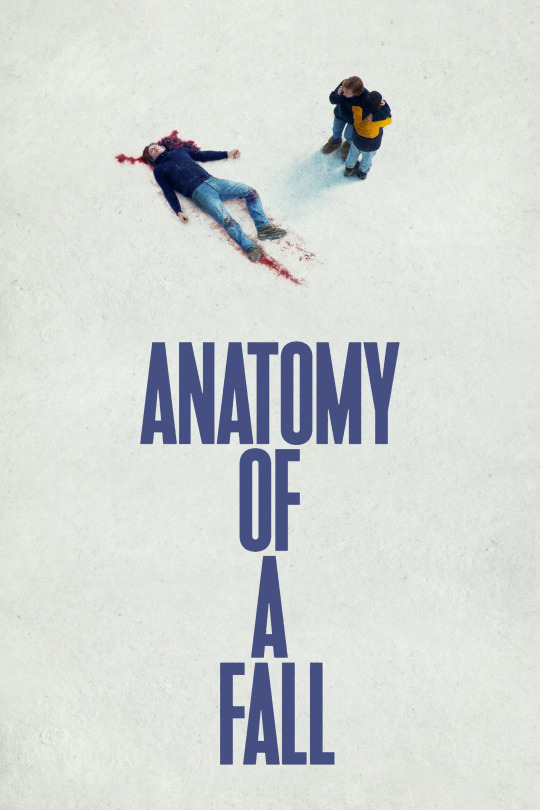


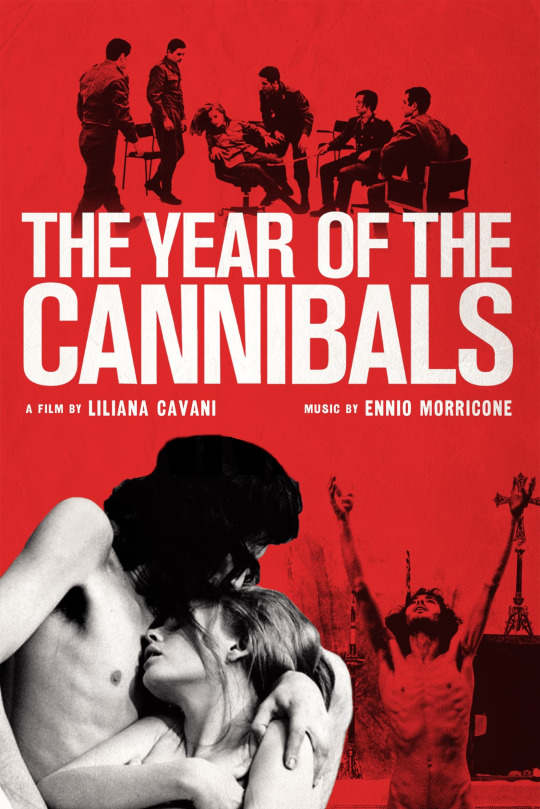


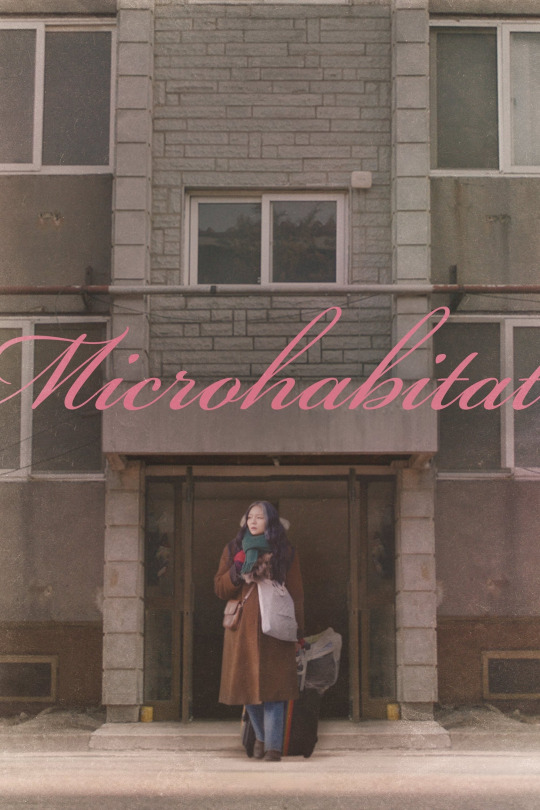
as is tradition here are my top nine new-to-me watches of the year—in no particular order (l-r, top row to bottom row):
the african desperate (martine syms, 2022) not a pretty picture (martha coolidge, 1975) anatomy of a fall (justine triet, 2023) the girls (mai zetterling, 1968) network (sidney lumet, 1976) the year of the cannibals (liliana cavani, 1970) all the beauty and the bloodshed (laura poitras, 2022) straight on till morning (peter collinson, 1972) microhabitat (jeon go-woon, 2017)
i hit 150 total films and my continual goal of half of the films by women and nonbinary filmmakers, and still definitely need to keep up with deliberately seeking out films by directors of color! feel free to tell me your faves if you’ve seen any of these 🖤👀🎬🍿🎥
i'll tag @privatejoker / @wanlittlehusk / @majorbaby / @edwardalbee / @draftdodgerag / @lesbiancolumbo / @frmulcahy / @nelson-riddle-me-this / @firewalkwithmedvd and anyone else who'd like to share their top watches of the year!
full list of films for the year is included below, favorites are bolded in red:
Farewell Amor (Ekwa Msangi, 2020)
Hell Camp: Teen Nightmare (Liza Williams, 2023)
Blacks Britannica (David Koff, 1978)
New Year, New You (Sophia Takal, 2023)
Family Band: The Cowsills Story (Louise Palanker and Bill Filipiak, 2011)
The Color Purple (Blitz Bazawule, 2023)
The Apology (Alison Star Locke, 2022)
Close (Lukas Dhont, 2022)
Unintended (Anja Murmann, 2018)
Other People’s Children (Liz Hinlein, 2015)
Omega Rising Women of Rastafari (D. Elmina Davis, 1988)
The Gypsy Moths (John Frankenheimer, 1969)
Be My Cat: A Film for Anne (Adrian Țofei, 2015)
Insomnia (Christopher Nolan, 2002)
Chowchilla (Paul Solet, 2023)
Intimate Relations (Philip Goodhew, 1996)
Monument (Jagoda Szelc, 2018)
After Sherman (Jon Sesrie Goff, 2022)
Remnants of the Watts Festival (Ulysses Jenkins, 1980)
Network (Sidney Lumet, 1976)
The Taking of Pelham One Two Three (Joseph Sargent, 1974)
Down Low (Rightor Doyle, 2023)
Our Father, the Devil (Ellie Foumbi, 2021)
The Zone of Interest (Jonathan Glazer, 2023)
Youngblood (Noel Nosseck, 1978)
Joy Division - Under Review (Christian Davies, 2006)
Being Frank: The Chris Sievey Story (Steve Sullivan, 2018)
Sun Ra: A Joyful Noise (Robert Mugge, 1980)
Fanny: The Right To Rock (Bobbi Jo Hart, 2021)
Depeche Mode: The Dark Progression (Alec Lindsell, 2009)
Kraftwerk And The Electronic Revolution (Thomas Arnold, 2008)
Blank City (Celine Danhier, 2010)
Oliver Sacks: His Own Life (Ric Burns, 2019)
Monster (Hirokazu Kore-eda, 2023)
Black Is Beltza (Fermín Muguruza, 2018)
Werewolf (Ashley McKenzie, 2016)
The Humans (Stephen Karam, 2021)
Relative (Tracey Arcabasso Smith, 2022)
The Believer (Henry Bean, 2001)
Lost Angel: The Genius of Judee Sill (Brian Lindstrom and Andy Brown, 2022)
Animals (Collin Schiffli, 2014)
Scott Walker: 30 Century Man (Stephen Kijak, 2006)
Novitiate (Maggie Betts, 2017)
Hunger (Henning Carlsen, 1966)
Late Night With The Devil (Cameron Cairnes and Colin Cairnes, 2023)
The Stunt Man (Richard Rush, 1980)
New York Doll (Greg Whiteley, 2005)
The Iron Claw (Sean Durkin, 2023)
Your Fat Friend (Jeanie Finlay, 2023)
Scarred Justice: The Orangeburg Massacre 1968 (Bestor Cram and Judy Richardson, 2008)
Targets (Peter Bogdanovich, 1968)
Uptight (Jules Dassin, 1968)
Messiah of Evil (Gloria Katz and Willard Huyck, 1973)
Plastic Paradise (Brett O’Bourke, 2013)
You Hurt My Feelings (Nicole Holofcener, 2023)
Pretty Poison (Noel Black, 1968)
The Shout (Jerzy Skolimowski, 1978)
Shakedown (Leilah Weinraub, 2018)
Class of 1984 (Mark L. Lester, 1982)
Betty: They Say I’m Different (Philip Cox, 2017)
Beautiful Boy (Felix van Groeningen, 2018)
Anatomy of a Fall (Justine Triet, 2023)
Gimme Shelter (Albert Maysles, David Maysles, and Charlotte Zwerin, 1970)
The Beach Boys (Frank Marshall and Thom Zimny, 2024)
High and Low (Kevin Macdonald, 2023)
Brats (Andrew McCarthy, 2024)
I Saw The TV Glow (Jane Schoenbrun, 2023)
The Talented Mr. Ripley (Anthony Minghella, 1999)
Altered States (Ken Russell, 1980)
This Closeness (Kit Zauhar, 2023)
How To Have Sex (Molly Manning Walker, 2023)
American Commune (Rena Mundo Croshere and Nadine Mundo, 2013)
Look In Any Window (William Alland, 1961)
Private Property (Leslie Stevens, 1960)
We’re Still Here: Johnny Cash’s Bitter Tears Revisited (Antonino D’Ambrosio, 2015)
The Wobblies (Stewart Bird and Deborah Shaffer, 1979)
Last Summer Won’t Happen (Tom Hurwitz and Peter Gessner, 1968)
Goodbye Gemini (Alan Gibson, 1970)
Keyboard Fantasies: The Beverly Glenn-Copeland Story (Posy Dixon, 2019)
The Most Beautiful Boy in the World (Kristina Lindström and Kristian Petri, 2021)
The Passenger (Carter Smith, 2023)
The Boys Who Said No (Judith Ehrlich, 2020)
Synecdoche, New York (Charlie Kaufman, 2008)
Karen Carpenter: Starving for Perfection (Randy Martin, 2023)
...And Justice For All (Norm Jewison, 1978)
I Used To Be Funny (Ally Pankiw, 2023)
Badlands (Terrence Malick, 1973)
Straight On Till Morning (Peter Collinson, 1972)
The Same Difference: Gender Roles in the Black Lesbian Community (Nneka Onuorah, 2015)
Thanksgiving (Eli Roth, 2023)
Sorry/Not Sorry (Caroline Suh and Cara Mones, 2023)
Am I OK? (Tig Notaro and Stephanie Allynne, 2022)
Joan Baez: I Am a Noise (Maeve O’Boyle, Miri Navasky, and Karen O’Connor, 2023)
No Direction Home (Martin Scorsese, 2005)
Shutter Island (Martin Scorsese, 2010)
Water Lilies (Céline Sciamma, 2007)
The Strings (Ryan Glover, 2020)
The Crucible (Nicholas Hytner, 1996)
Woman of the Hour (Anna Kendrick, 2024)
The Platform (Galder Gaztelu-Urrutia, 2019)
Tabloid (Errol Mark Morris, 2010)
Will & Harper (Josh Greenbaum, 2024)
Miller’s Girl (Jade Halley Bartlett, 2024)
Give Me Pity! (Amanda Kramer, 2022)
Landlocked (Paul Owens, 2021)
Perfect Love (Catherine Breillat, 1996)
Not a Pretty Picture (Martha Coolidge, 1975)
Seeking Mavis Beacon (Jazmin Jones, 2024)
Renfield (Chris McKay, 2023)
Compulsion (Richard Fleischer, 1959)
An Angel At My Table (Jane Campion, 1990)
Longlegs (Oz Perkins, 2024)
Rare Beasts (Billie Piper, 2019)
Nightman (Mélanie Delloye-Betancourt, 2023)
The Changin’ Times of Ike White (Daniel Vernon, 2020)
The Substance (Coralie Fargeat, 2024)
The Year of the Cannibals (Liliana Cavani, 1970)
Fanatical: The Catfishing of Tegan and Sara (Erin Lee Carr, 2024)
The Loneliest Planet (Julia Loktev, 2011)
Marjoe (Howard Smith and Sarah Kernochan, 1972)
Witches (Elizabeth Sankey, 2024)
Angela (Rebecca Miller, 1995)
The Morning After (Richard T. Heffron, 1974)
Beach Rats (Eliza Hittman, 2017)
Last Summer (Catherine Breillat, 2023)
The Fits (Anna Rose Holmer, 2015)
Hold Your Breath (Karrie Crouse and Will Joines, 2024)
What Comes Around (Amy Redford, 2022)
Dear Zachary: A Letter to a Son About His Father (Kurt Kuenne, 2008)
Priscilla (Sofia Coppola, 2023)
The Girls (Mai Zetterling, 1968)
Sweetie (Jane Campion, 1989)
Victim/Suspect (Nancy Schwartzman, 2023)
The African Desperate (Martine Syms, 2022)
Les Nôtres (Jeanne Leblanc, 2020)
A Sacrifice (Jordan Scott, 2024)
All the Beauty and the Bloodshed (Laura Poitras, 2022)
My Name is Not Ali (Viola Shafik, 2011)
Committed (Sheila McLaughlin and Lynne Tillman, 1984)
Chained (Jennifer Lynch, 2012)
The Hour of Liberation Has Arrived (Heiny Srour, 1974)
All Power To The People! (Lee Lew-Lee, 1997)
Night Moves (Kelly Reichardt, 2013)
Destroyer (Karyn Kusama, 2018)
Late Night (Nisha Ganatra, 2023)
The Year Between (Alex Heller, 2022)
Loved (Erin Dignam, 1997)
Girl In The Picture (Skye Borgman, 2022)
Microhabitat (Jeon Go-Woon, 2017)
Dear Ex (Mag Hsu and Chih-yen Hsu, 2018)
#i might watch more films between now and tomorrow so who knows but here's the final list; 150 new to me features feels like a good yearly#goal and if i surpass it all the better lol#the african desperate was my top film of the year <3
43 notes
·
View notes
Text










Shakedown flyers 2002-2004
Shakedown was a series of parties founded by and for Black women in Los Angeles featuring go-go dancing and strip shows for the city's lesbian underground scene.
From "Shakedown" (2018), Dir. Leilah Weinraub
19 notes
·
View notes
Text

Shakedown - Directed by Leilah Weinraub
"‘Shakedown’ was a series of parties founded by and for African American women in Los Angeles that featured go-go dancing and strip shows for the city’s lesbian underground scene. Inspired by transwoman Mahogany who, as the mother of the scene, presided over queer strip shows and balls for non-heterosexual audiences in the 1980s, butch Ronnie Ron created, produced and presented the new shows. In them, the largely female clientele from the ‘hood’ slipped dollar notes into lap dancers’ panties while celebrating lesbian sexuality to pulsating hip-hop beats. "
#film#lgbt film#lgbt history#lgbt#lesbian#black lesbian#black wlw#queer film#queer history#black sapphic#nsft lgbt#nsft lesbian
29 notes
·
View notes
Text
taking a break from everything, especially protesting, while i finished my collection and had my runway show was so surreal and such a difficult decision it makes me a bit sick. im trying to make my way out of sw eventually and trying to actually make my brand into a career but it is just so soul crushing sometimes having to put aside real shit that matters so that i can advance in my goals under capitalism (even though yes i am not above following my dreams and not wanting to struggle). some things don't feel right and fashion feels so soulless sometimes. at least the legend herself leilah weinraub walked my show.. photos coming to tumblr shortly
32 notes
·
View notes
Text
Shakedown (2018)

This documentary was created by Leilah Weinraub. It sheds light on an underground lesbian club in Los Angeles that was active in the 90s and early 2000s. It is assembled from over 400 hours of camcorder footage, taken by the director, over the course of the rise and fall of the club. She documented the scene because the strippers and lesbians featured in the film were her friends. And after milling through the footage and working on the film for a decade, Shakedown is what was created.
I went into this documentary blind, I knew nothing beyond the fact that lesbians were involved (which will easily sell me). I came out of that movie in awe, it is an exhilarating watch that doesn't sugarcoat anything. It is raw, explicit, and honest. A true portrait of a scene that cannot exist today.
Documentation is incredibly special, being able to witness, an otherwise erased, history is truly beyond words. You can feel Weinraub's careful consideration and love for everyone featured in the film. When it comes to documentaries the discussion of ethics and exploitation is bound to come up. Both Andy Warhol and Jennie Livingston (Director of Paris is Burning) quickly come to mind. What makes Shakedown so special is the care that Leilah Weinraub took when creating this piece. These are her friends, women she admires, looks up to, and loves. In an interview she explained that above anything else she wanted to create an honest portrait: "I just wanted to make sure that what I was showing was fab Black culture, period... that’s just the way the world really is, and there’s an editing process where people try and simplify things. I just tried to be accurate, and that was what I saw." (An interview with ‘Shakedown’ director Leilah Weinraub).
In 2004 the club was shut down, it began when undercover cops began to infiltrate the events. They would linger, watch, and then strike. They would arrest the performer; in one case Jazmyne, was taken off the stage in handcuffs and ticketed for soliciting. The police were relentless, during every single performance the cops lingered in the audience. Their presence was heavy, felt by the audience and the performers. They were so persistent that eventually the club had no choice but to eventually shut down.
The club was a safe haven for black and brown lesbians in LA, a safe place to gather and celebrate their identity. It only took a few months the LAPD easily crushed the club, never actually shutting it down but slowly pushing them out using fear tactics, tickets, and their presence. It made me think of 'Feminist standpoint theory' that Patricia Hill Collins spoke about. This is based on the idea that Black women have a unique perspective on their marginalized status due to the matrix of oppression. All of the women in Shakedown knew that it had to come to an end, they had an understanding that at some point because of their identities and the matrix, Shakedown would be run into the ground. Ronnie Ron, the organizer, always carried a nonchalant attitude throughout the film. At the end, when the club was dismantled there was a sense of acceptance, prior knowledge that this was coming.
This film is a beautiful example of an incredibly well-made lesbian film, and it is so special that we have access to such incredible, rich history. I truly cannot recommend this film enough.
0 notes
Text
Shakedown - 2018
"Shakedown" (2018) is a documentary film directed by Leilah Weinraub. The film provides a captivating and intimate look at the underground queer strip club scene in Los Angeles, focusing on a specific club known as Shakedown. "Shakedown" explores the vibrant and underground world of a Los Angeles strip club, primarily through the lens of its Black queer women performers. The documentary spans a period from the late 1990s to the early 2000s, capturing the club's dynamic atmosphere, the personal stories of its dancers, and the cultural significance of the venue in the LGBTQ+ community. I thought it was a good informational watch because I didn't know such clubs existed before, I thought it wasn't until later on that clubs like these came to fruition. Especially with it being so popular, I wasn't expecting that either. It was also great to see that everyone there was happy with expressing themselves and doing what they needed to do to make themselves happy since everywhere else won't' be as welcoming as the club is. The few key people within this film that have been highlighted were Ronnie-Ron, Mahogany, Egypt, and Jazmyne. Each of them had their own stories to tell as well as how they did their job. It was cool to see and hear each other their own respective stories and how each of them ended up within the grace of the Shakedown Club. Even seeing the interview of Leilah Weinraub was crazy because I was expecting someone without energy as well as having a deep insight kind of energy around her. Somewhere in line with the energy that the film was showing throughout its time. But it was extremely surprising to see the difference in expectations I had for her, she was a very mellow and quiet person based on the interview that I saw. Which I guess makes sense because she is a documentor, meaning that she has to have a low presence to show the others around her other than herself. Upon looking it up, "Shakedown" premiered at the Berlin International Film Festival in 2018 and has been praised for its authentic portrayal of an often-overlooked subculture. Critics have praised Weinraub's directorial approach, noting the film's ability to capture the essence of the Shakedown community and its significance within the broader LGBTQ+ and Black communities. I thought was cool that she showed it at the Berlin International Film Festival in 2018, seeing as though she is the only one who worked on the film. Even looking at the backstory before she decided to shoot the film, She was initially brought to the club by a friend and was so amazed by it that she asked for a job there, eventually being hired as a photographer and videographer. She shot over 400 hours of footage. The film shows the strip club's heyday, between 2002 and 2004 when the club's main venue was shut down by Los Angeles police who cracked down on nude performers in the city. Overall this film was a good watch because it taught me something I didn't know was that popular.
0 notes




